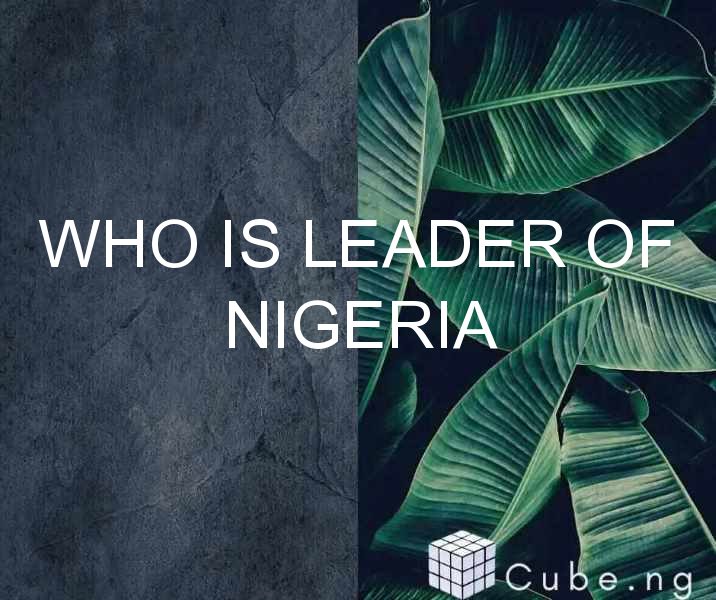Table of Contents
Who is Leader of Nigeria?
Nigeria is a country in West Africa with a population of over 200 million people. It is the most populous country in Africa and is known for its diverse culture and rich history. Nigeria has a complex political system, and the leader of the country is often a subject of great interest and controversy. In this article, we will explore the history of Nigeria's leadership and the current leader of Nigeria.
Nigeria's Political System
Nigeria is a federal republic with a presidential system of government. The country is divided into 36 states and one federal capital territory. The president of Nigeria serves as both the head of state and the head of government. The president is elected by the people of Nigeria and serves a four-year term.
The Nigerian political system also includes a bicameral legislature, with a Senate and a House of Representatives. Members of the legislature are elected by the people of Nigeria and serve a four-year term.
The History of Nigerian Leadership
Nigeria gained independence from British colonial rule in 1960. Since then, the country has had a turbulent history of military coups and civilian rule. The first prime minister of Nigeria was Sir Abubakar Tafawa Balewa, who served from 1960 until 1966 when he was overthrown in a military coup.
After the military coup, Nigeria was ruled by a series of military leaders until 1979 when the country returned to civilian rule. The first civilian president of Nigeria was Shehu Shagari, who served from 1979 until 1983 when he was overthrown in another military coup.
The country was ruled by a series of military leaders until 1999 when Nigeria returned to civilian rule. Since then, Nigeria has had four democratically elected presidents.
Current Leader of Nigeria
The current leader of Nigeria is President Muhammadu Buhari. He was elected in 2015 and re-elected in 2019. Buhari was born on December 17, 1942, in Daura, Katsina State, Nigeria. He joined the Nigerian Army in 1962 and rose to the rank of Major General.
Buhari served as the military ruler of Nigeria from December 1983 to August 1985 when he was overthrown in a coup. He later ran for president in 2003, 2007, and 2011 but was unsuccessful. In 2015, he ran again and was elected as the president of Nigeria.
Buhari's Presidency
Buhari's presidency has been marked by both successes and controversies. One of his major successes was the defeat of the Boko Haram insurgency in the northeast of the country. Boko Haram is a terrorist group that has been responsible for the deaths of thousands of people in Nigeria. Buhari's government has also made efforts to fight corruption in the country.
However, Buhari's government has been criticized for its handling of the economy, which has been in recession since 2016. The government has also been accused of human rights violations, including the suppression of free speech and the use of excessive force during protests.
The Future of Nigeria's Leadership
The future of Nigeria's leadership is uncertain. The country has a young and vibrant population, but it also faces many challenges, including corruption, insecurity, and economic instability. Many Nigerians are calling for a change in leadership and a new direction for the country.
As of now, it is unclear who will be the next leader of Nigeria. The country's next presidential election is scheduled for 2023. Many potential candidates have already started campaigning, and the race is expected to be highly contested.
Final Thoughts
Nigeria's leadership has a complex history, and the current leader of the country, Muhammadu Buhari, has both supporters and critics. The future of Nigeria's leadership is uncertain, but one thing is clear: the country needs strong and effective leadership to overcome the challenges it faces. The people of Nigeria will be watching closely as the country approaches its next presidential election in 2023, hoping for a leader who can bring about positive change and progress for their country.




